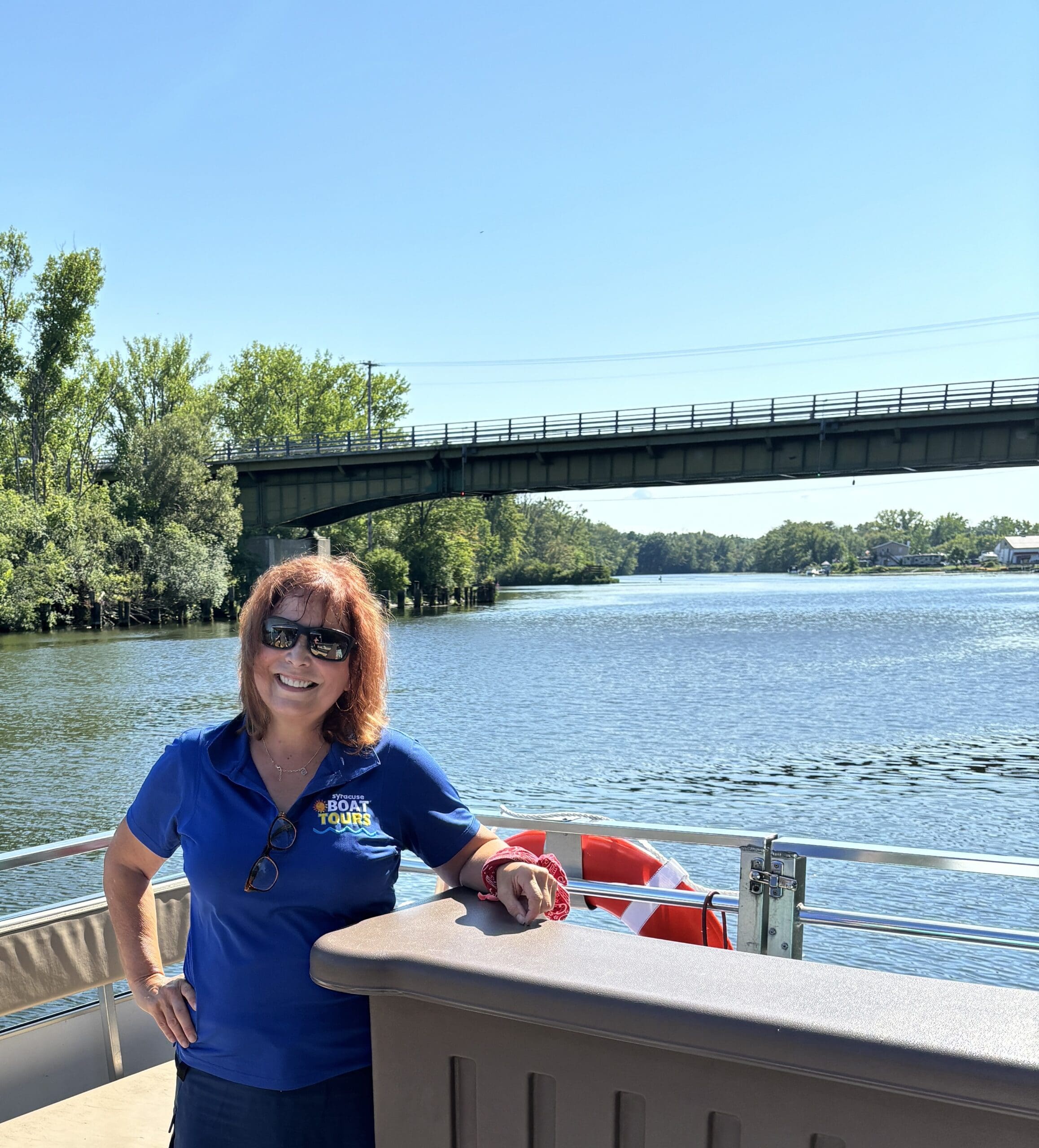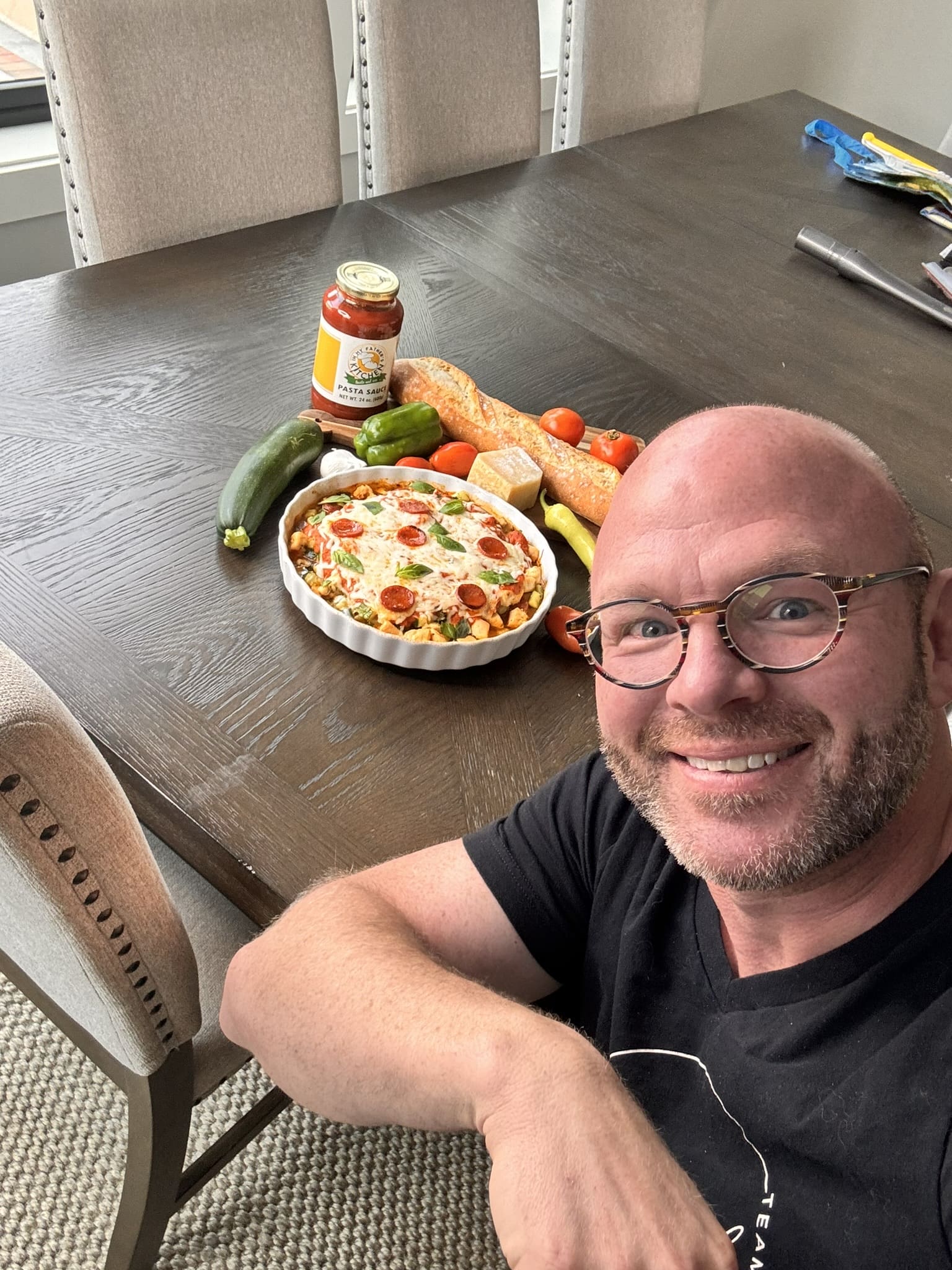A Life Made for Literacy
By Lorna Oppedisano | Photography by Paul Carmen
Though Marsha Tait didn’t set out with the intent of developing a career in the world of adult literacy, looking back at her family history, one might think it was destiny.
Her mother was the child of two immigrants, both of whom came to the United States speaking little English and learned the language on their own. Her father grew up on a farm in Canada. For his family, school was less of a priority than work.
“Although he became self-educated over the course of his life, he actually dropped out of school in the eighth grade and thought of himself as an uneducated man, and would refer to himself that way,” Marsha remembered. “And, so, I could see how a person who had not graduated from high school or gone on to higher ed would feel inferior and would lack confidence in the world, no matter what they accomplished or achieved.”
Now, as executive director of LiteracyCNY, Marsha works to help people in the Central New York area who struggle with literacy.
She moved to the area to attend Syracuse University, where she earned a bachelor’s degree in psychology.
After graduation, she spent some time working in the corporate sector, building a base of management and business skills.
When the time came for the next step in her career, Marsha felt drawn to the nonprofit world. She was hired as director of development at The Salvation Army, where she worked for about 18 months. Eventually, she decided she wanted to return to the corporate sector.
“I had made up my mind that I could do more good as a board member than as a staff person,” she remembered.
As it happens, though, life had other plans in store for Marsha.
A friend on the board of Literacy Volunteers of America, a national adult literacy organization headquartered in Syracuse, reached out to Marsha. The nonprofit was in need of someone with senior management experience to fill in as president for three months.
Marsha fit the bill and was hired. Thinking back, she joked she could have fit what she knew about nonprofit management and governance into a thimble, and she had no experience in the field of adult literacy. But, because of her family’s history, the job was a good fit.
“The issue resonated with me immediately,” she said.
Marsha could relate to both the population of students the organization served — those new to the English language and those seeking to further their literacy skills. She ended up staying on permanently as president.
During her time with the nonprofit, Literacy Volunteers of America merged with another national adult literacy organization, Laubach Literacy International. Marsha was part of the team that facilitated the merger and became senior vice president of ProLiteracy Worldwide, the new resulting organization.
When ProLiteracy’s president eventually retired, the incoming president asked Marsha to relocate to Washington, D.C. Having built a life in the Central New York area, she wasn’t ready to leave.
She’d begun taking a few classes at Syracuse University’s Maxwell School of Citizenship and Public Affairs. She decided to take the opportunity to go back to school full time, earning a degree in public administration, along with certificates in advanced study in conflict resolution and health management and services.
While studying, she’d joined the board of Literacy Volunteers of Greater Syracuse. Shortly after she graduated, the organization’s executive director became ill. Once again, Marsha found herself stepping into a temporary three-month position.
“And now, here I am, eight years later,” she said with a laugh.
As executive director of Literacy Volunteers of Greater Syracuse, Marsha had the opportunity to be creative. She brought strategies and ideas she’d learned at the national level to the local organization. Since she began steering the organization, they’ve expanded instructional programs, increased student enrollment, moved to the Syracuse Educational Opportunity Center and changed the name to LiteracyCNY.
The nonprofit offers two approaches: one-on-one tutoring with volunteers and small group classes taught by professional instructors at the Syracuse Educational Opportunity Center and in remote locations hosted by partner organizations. Marsha loves the immediacy of this work, she said.
“We, on staff, have the privilege of being able to see people’s lives transformed as they acquire skills they never thought they could acquire,” she said.
Throughout her life, Marsha’s seen the result of adult literacy on a personal, local and national scale. The total sum of her career adds up to helping end intergenerational poverty in her community, which in turn gives people the chance to excel past entry level positions and achieve a living wage.
“You can’t address issues like intergenerational poverty unless you provide people with the opportunity to improve their literacy and educational skills,” Marsha said. “And, so, we’re a key part of the solution.” SWM





